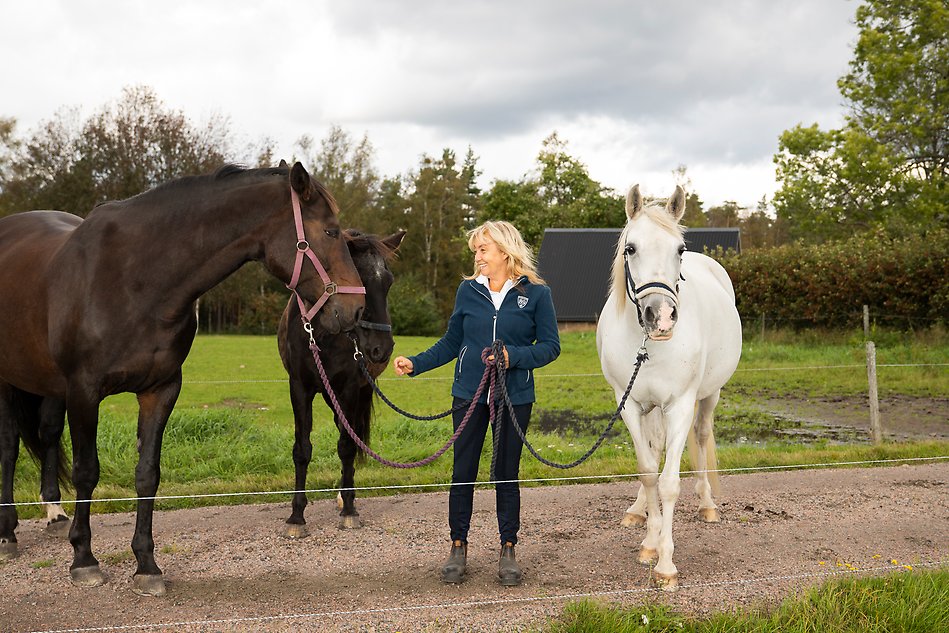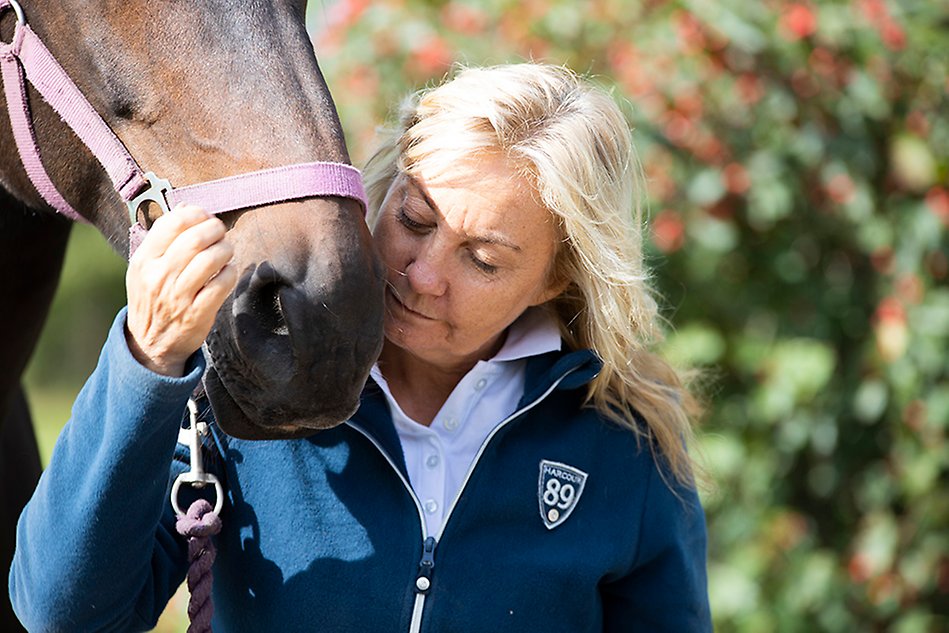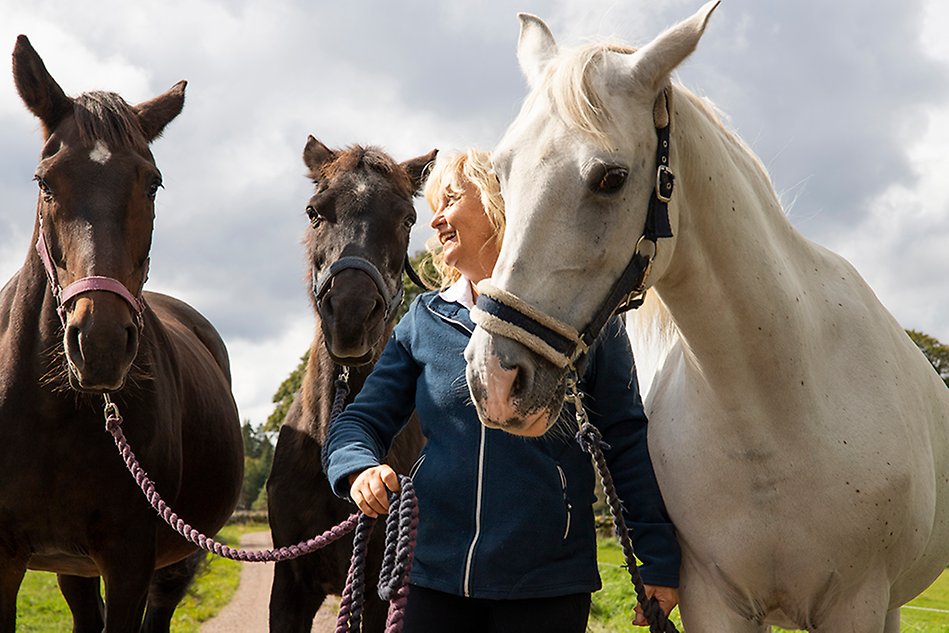Rhythmic hoof tread, satisfied snorts and soothing hay chews – the road to sustainable health?
Mental illness is a common topic in society. At the School of Health and Welfare (HOV) at the University, we work actively in both education and research with the subject. Partly through the specialist nursing programme in psychiatric care, and partly through the doctoral programme in Health and Lifestyle. Some of our doctoral students focus on health-promoting holistic interventions to promote lasting health and recovery for people with psychiatric diagnoses.
This is a personally written text. Any opinions expressed are the author’s own.
“... equine-assisted therapy contributes to both children and adults with mental illness feeling calm, having reduced worry and anxiety, as well as strengthened self-esteem and self-reliance."
Henrika Jormfeldt, Professor

If we gather experiences from education at the undergraduate, advanced and postgraduate levels at HOV, it is easy to see that today’s psychiatric health care predominantly has a medical outlook and almost exclusively offers medical treatment options. There is a lack of holistic health promotion for people with psychiatric diagnoses.
Mental illness is alleviated, but not cured
Mental illness among children and young people in the form of problematic school absenteeism, eating disorders and ADHD, as well as the prescription of psychotropic drugs, is increasing both in Sweden and internationally. Difficulties at a young age increase the risk of mental illness later in life. The long-term effects of a large proportion of children and young people being medicated permanently at an early age are not yet clear.
Psychiatric diagnoses are often regarded as genetic and chronic. The medical treatment is not intended to cure mental illness but aims to relieve symptoms but often entails serious side effects such as fatigue, weight gain, metabolic syndrome, type 2 diabetes and cardiovascular diseases. People with long-term mental disabilities are almost twice as likely to die prematurely from cardiovascular disease, and life expectancy is shortened by as much as 25 to 30 years, compared to the rest of the population.

Henrika Jormfeldt.
People with personal experience of living with mental illness and their relatives have pointed out that the psychiatric health care system is deficient in terms of health-promoting interventions – despite the fact that it is both possible and important to prevent obesity, metabolic syndrome and cardiovascular diseases with health-promoting nursing interventions.
Since 2017, a handful of researchers at the School of Health and Welfare have been working on research on equine-assisted therapy. It is about health-promoting equine-assisted interventions where the horse helps to promote health and well-being from a holistic perspective – both physical and mental health.
Context with a common focus
Recently published studies from Halmstad University show that equine-assisted therapy contributes to both children and adults with mental illness feeling calm, having reduced worry and anxiety, as well as strengthened self-esteem and self-reliance. These nursing goals are often difficult to achieve in traditional mental health care. The current studies show that equine-assisted activities reduce depression and negative emotions in people with schizophrenia and similar psychotic conditions. Among other things, the horse contributes to calmness with its characteristic sounds such as rhythmic hoof trampling, satisfied snorts and soothing hay chewing. When the intervention is given in groups, the horses contribute to a stronger sense of community by making the horses an everyday topic of conversation that naturally helps the participants to identify other personal characteristics of themselves than symptoms and disease diagnosis – which is a common focus in traditional psychiatric care.

One of the published studies describes relatives' experiences of horse-assisted activity for people with schizophrenia and confirms that the horses contribute to a context with a common focus for the participants. The interaction with the horses increases the participants' self-confidence and motivation for physical activity, even though this group is often described as difficult to activate.
An ongoing interview study with people who are on sick leave due to stress, anxiety and fatigue depression, shows that equine-assisted rehabilitation contributes to recovery, but that the intervention is often not available, offered for too short a period or is poorly integrated into the care chain back to working life.
The results from the studies carried out at Halmstad University are consistent with national and international research in the field. Horse-assisted interventions need to be offered to children and adults with mental illness who are not helped by traditional care, in order to be evaluated and contribute to continued research and reliable evidence in the field.
Text: Henrika Jormfeldt
Photo: Dan Bergmark

